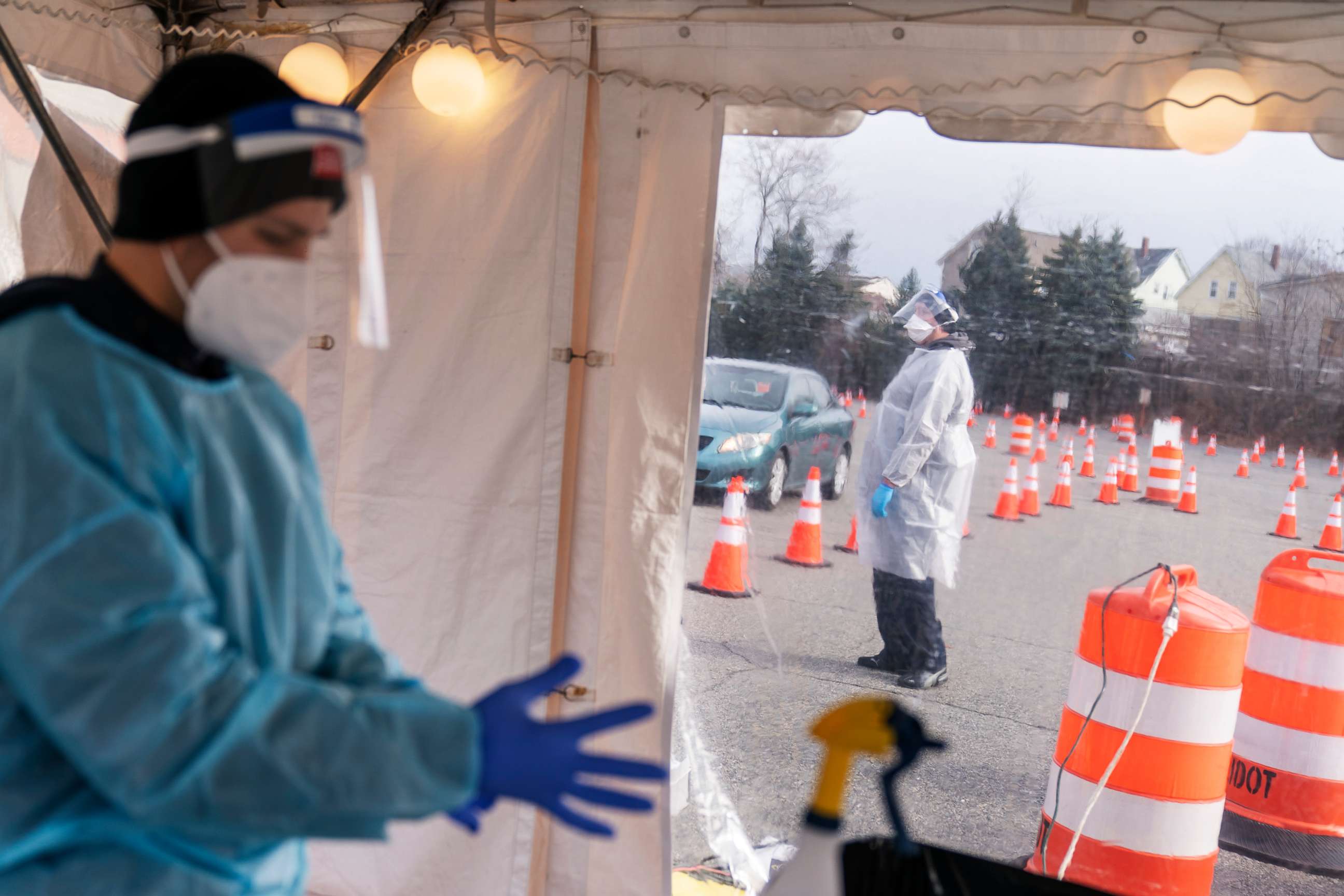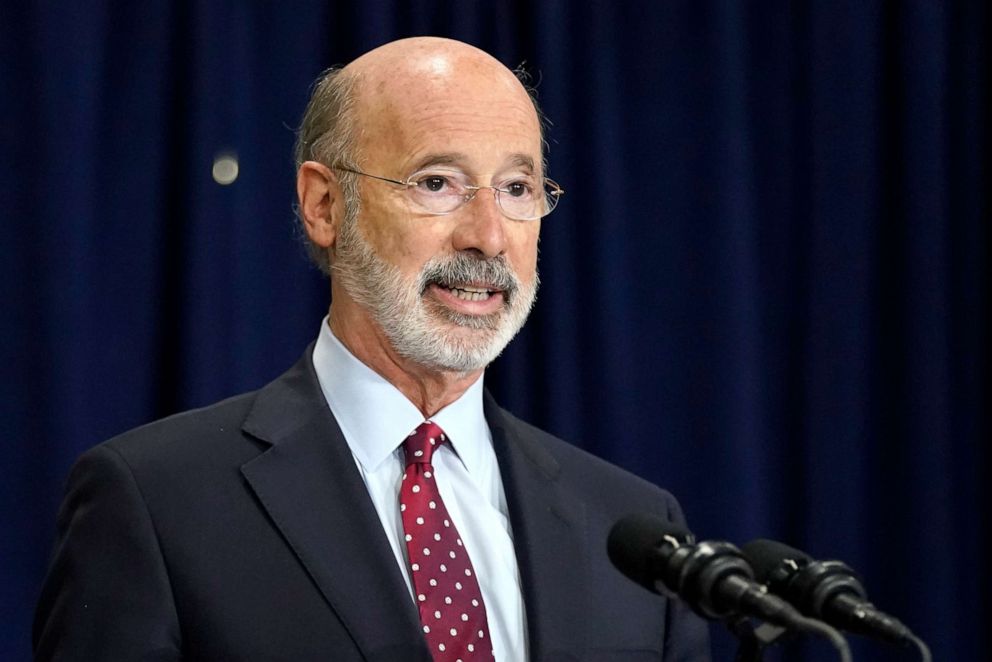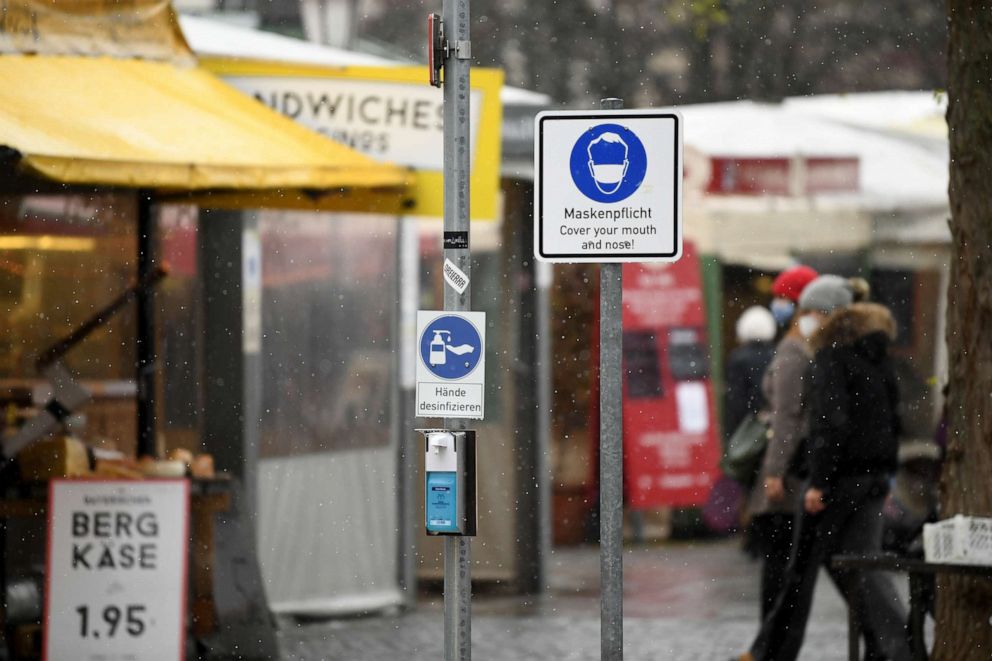2.9 million doses to go out immediately upon FDA authorization
Once the FDA approves the Pfizer/BioNTech vaccine, 2.9 million doses will go out immediately in the U.S., said Gen. Gus Perna, commander of the Army Materiel Command. The second batch of 2.9 million will be close behind, within 21 days, Perna said.
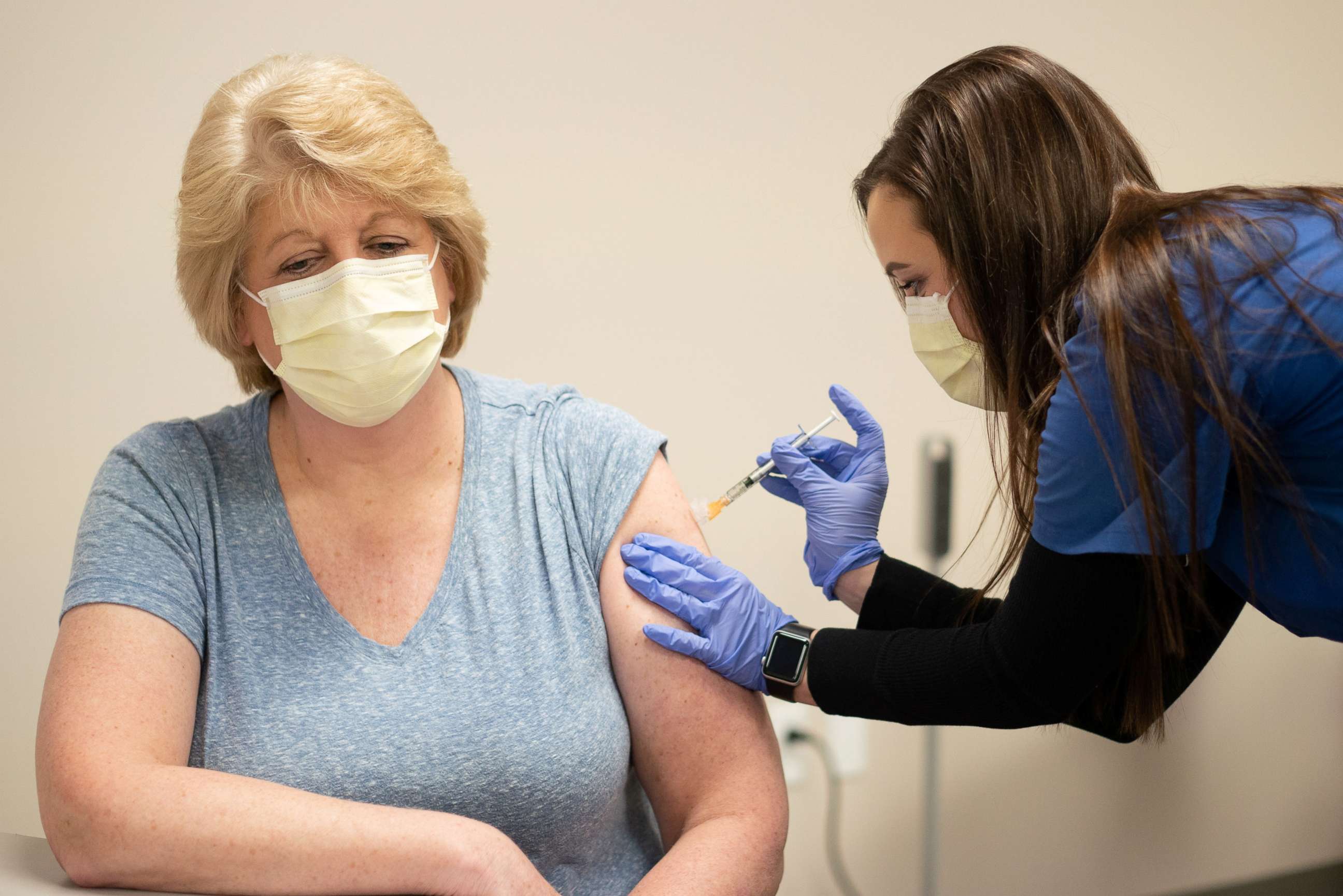
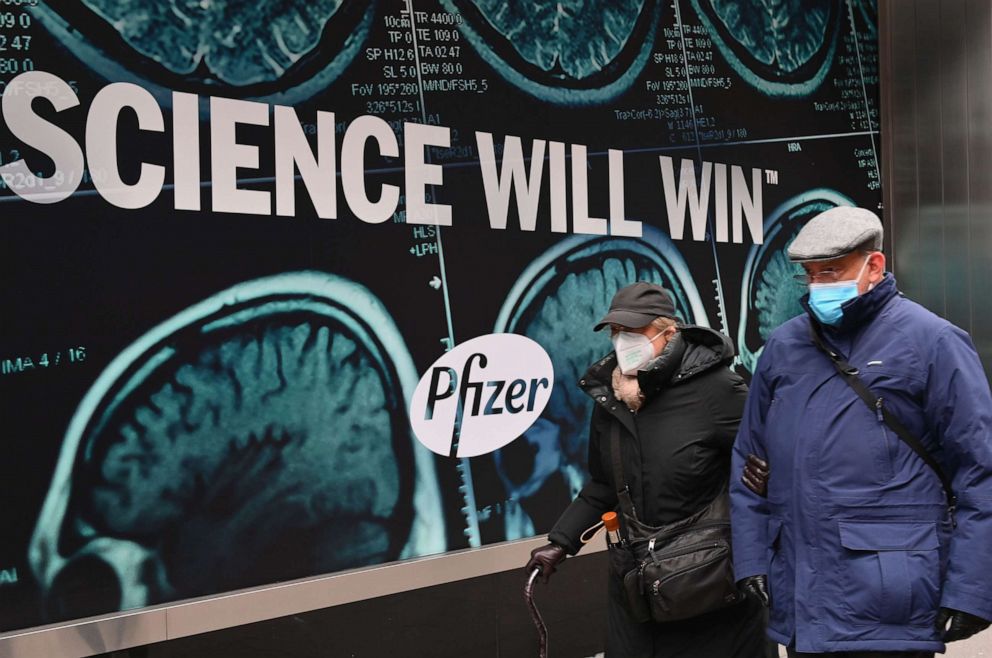
Twenty million Americans are expected to be vaccinated by the end of 2020, Health and Human Services Secretary Alex Azar said.
"We remain confident that across our portfolio of multiple vaccines, we will have enough doses for any American who wants a vaccine by the end of the second quarter of 2021," Azar said.
After two allergic reactions to the Pfizer/BioNTechvaccine were reported in the United Kingdom, Moncef Slaoui, Trump’s chief scientific adviser on vaccines, told reporters, "The expectation would be that subjects with known severe reaction, allergic reaction, should not take the vaccine, until we understand exactly what happened here."
ABC News' Anne Flaherty contributed to this report.
